Regional Stakeholders Discuss Advancing Sustainable Straw Management in Asia and the Pacific
Meeting Documents
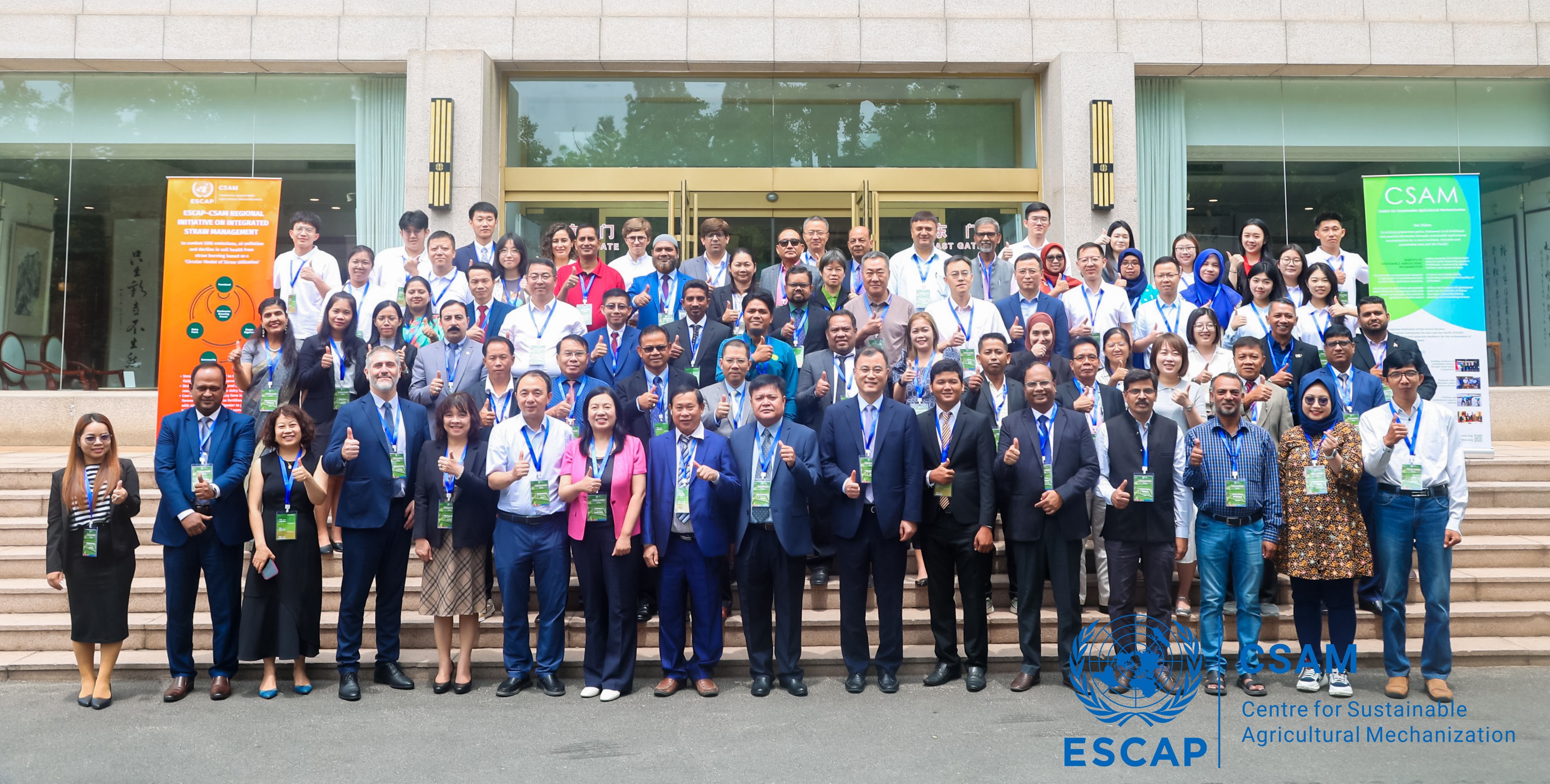
On 19 and 20 June 2024 over 100 stakeholders, policymakers and representatives from 16 countries and international organizations gathered in Qingdao, China, to participate in the Regional Workshop on Integrated Straw Management in Asia and the Pacific organized by CSAM in collaboration with the ESCAP Environment and Development Division and Subregional Offices for South-East Asia, South and South-West Asia, as well as China Institute for Conservation Tillage, China Agricultural University and with the support of local agencies in Qingdao.
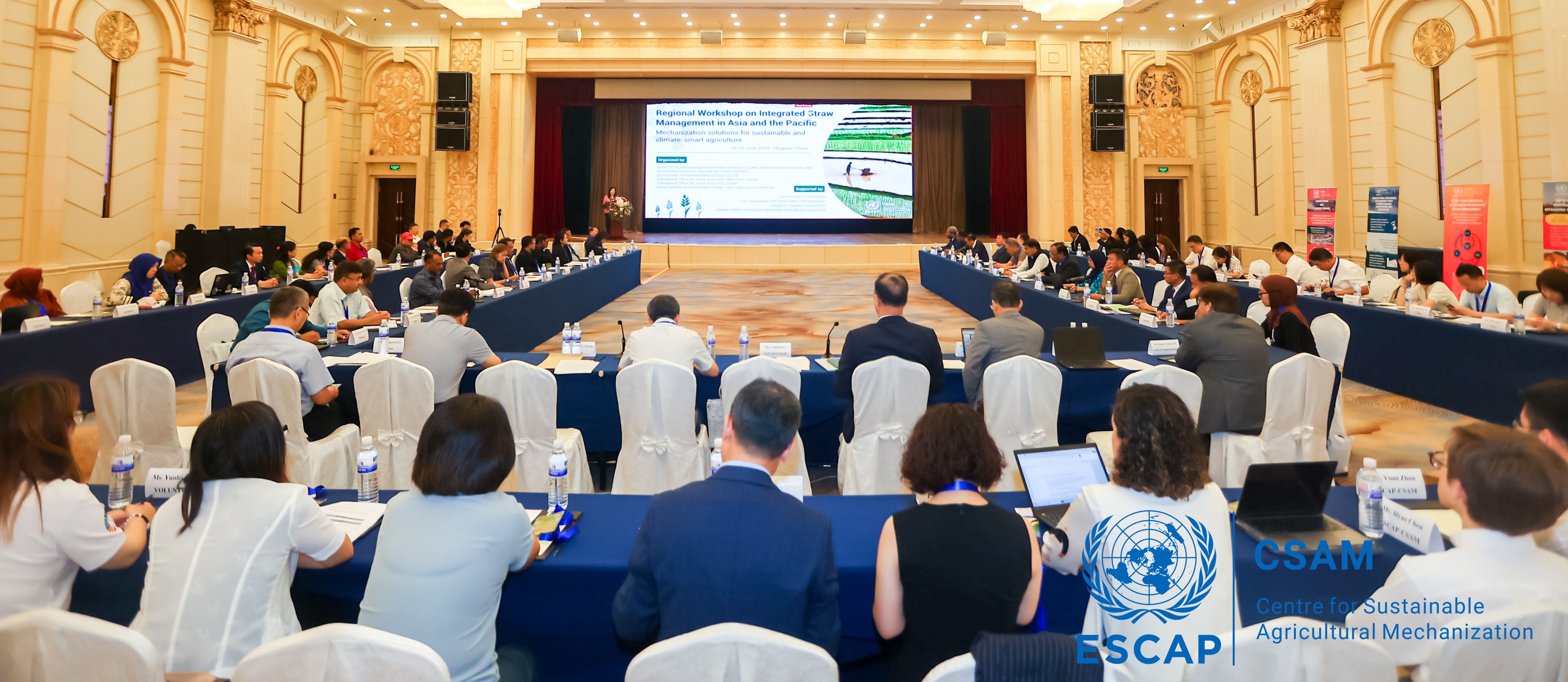
The burning of straw residue is a transboundary issue faced by many countries in the Asia-Pacific region in their efforts to promote sustainable food systems and climate-smart agriculture, and achieve the related Sustainable Development Goals’ targets. To contribute addressing this issue, the objective of the regional workshop was to share good practices and foster knowledge exchange on mechanization solutions to address crop residue burning, ultimately promoting regional collaboration for sustainable agricultural mechanization and climate-smart agriculture.
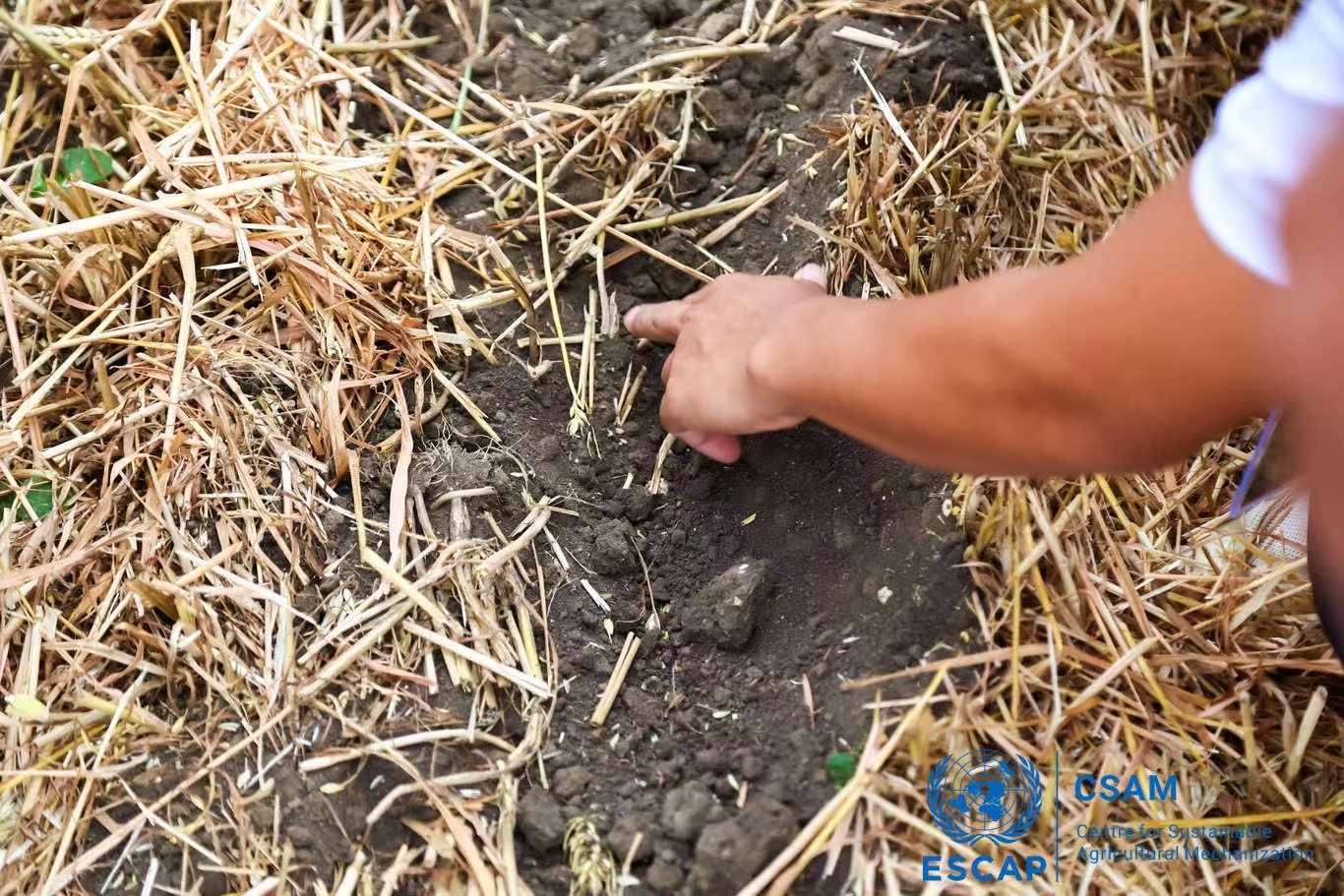
The workshop was opened by Mr. Xiaowei Liu, Deputy Director General of the China Agricultural Machinery Centre, Ministry of Agriculture and Rural Affairs of China; Mr. Sangmin Nam, Director of the ESCAP Environment and Development Division; Ms. Yutong Li, Head of CSAM; and Mr. Xingmo Cheng, Deputy DG-level Counsel of the Qingdao Agriculture and Rural Affairs Administration.
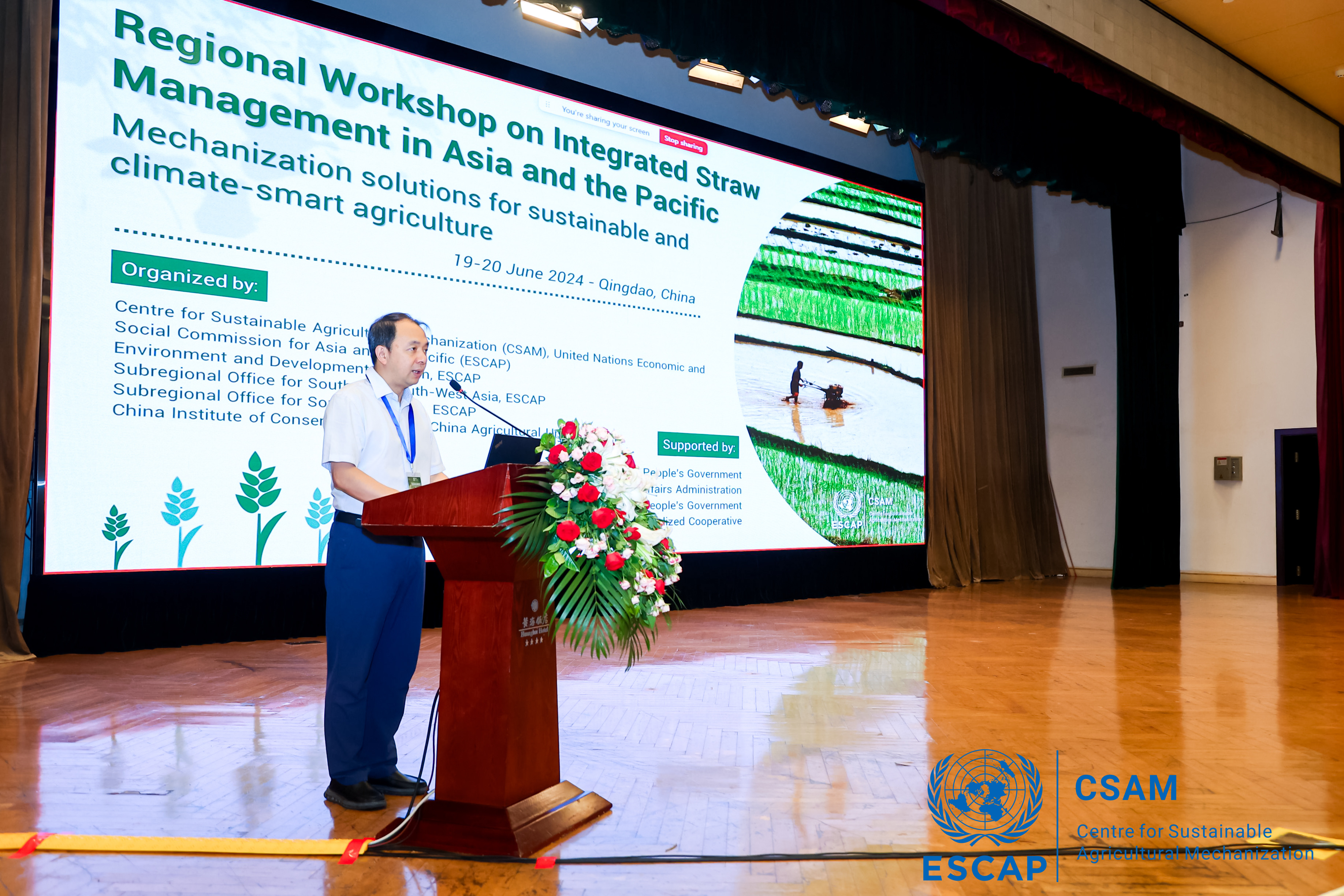
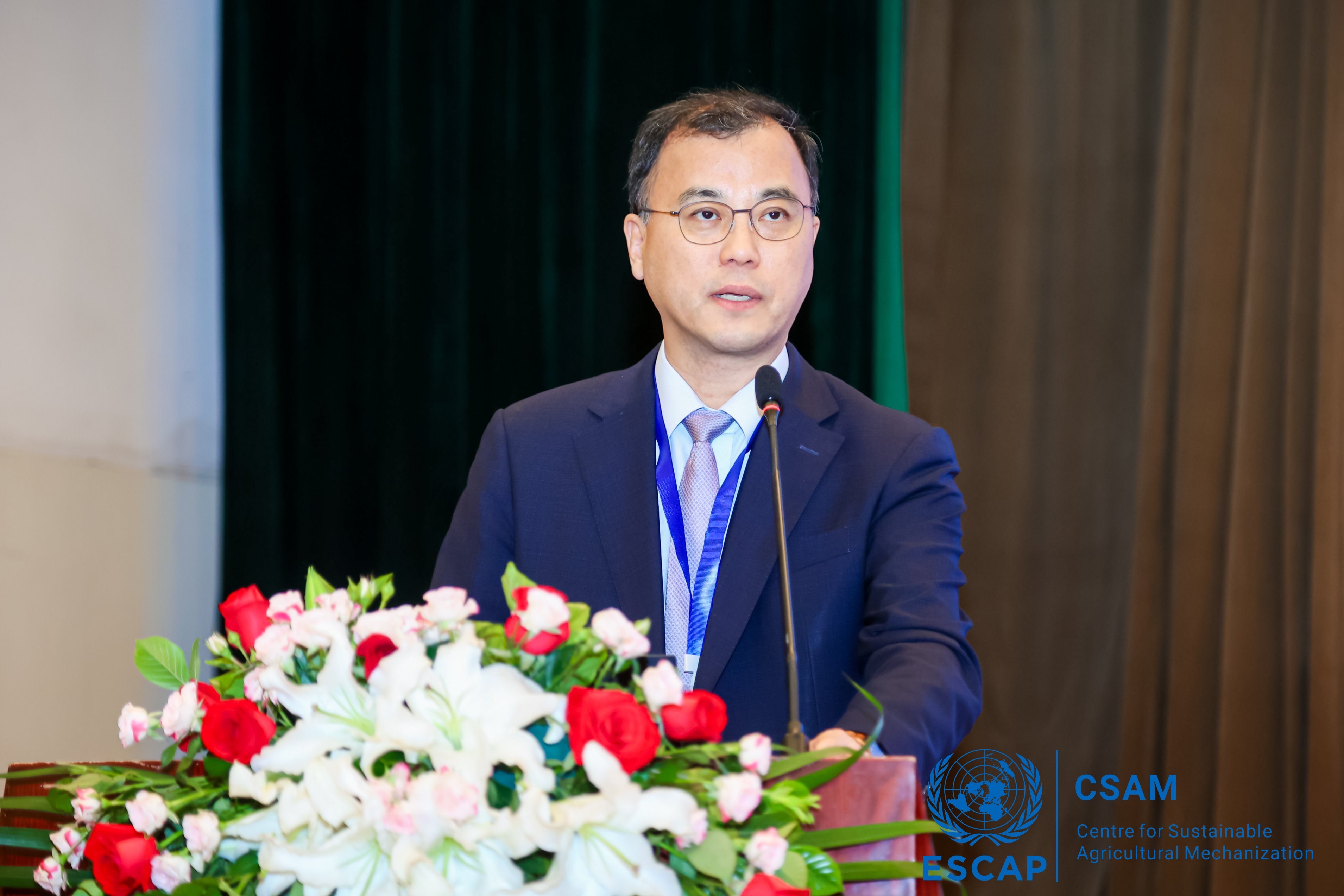
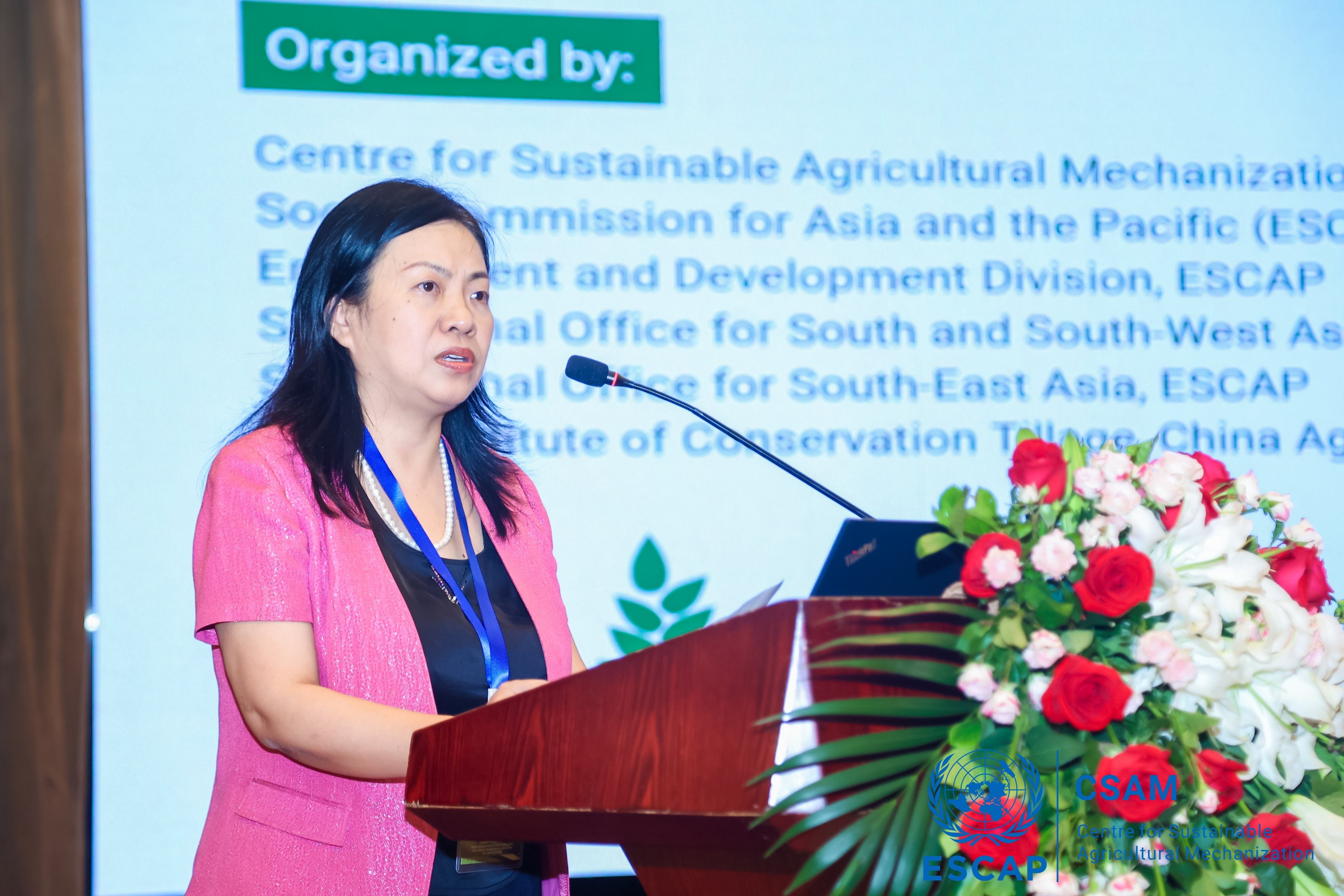
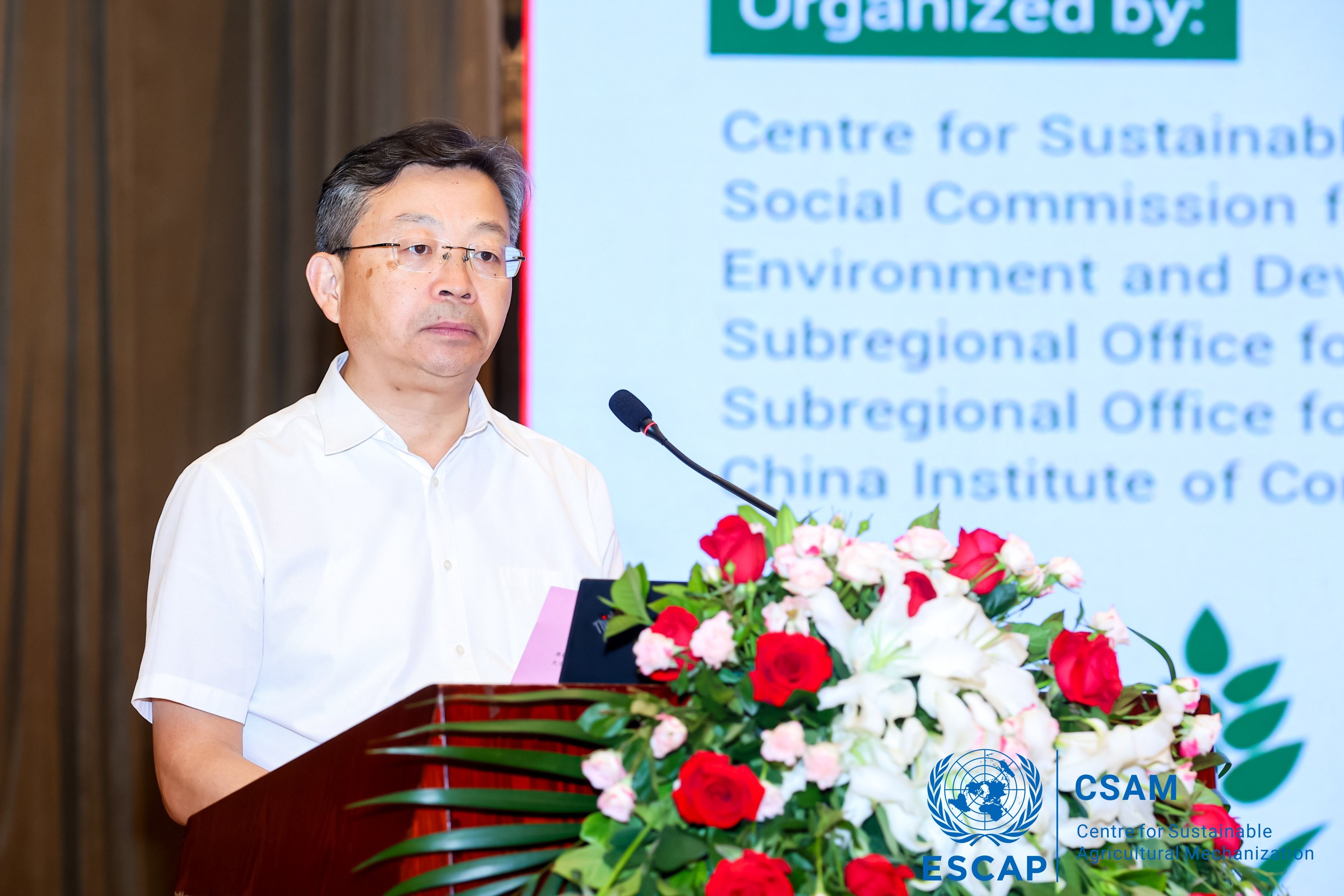
The opening ceremony was followed by keynote presentations on mechanization solutions to the issue of straw burning at the national, subregional and regional level. These included presentations on China’s solutions for crop residue burning by the Institute for Conservation Tillage of China Agricultural University; an overview of the CSAM Regional Initiative on Integrated Straw Management; the key policy considerations for reducing straw burning by the ASEAN Secretariat; and the results of a trial by the Asian Development Bank in Pakistan focusing on mechanized harvesting to address straw burning.
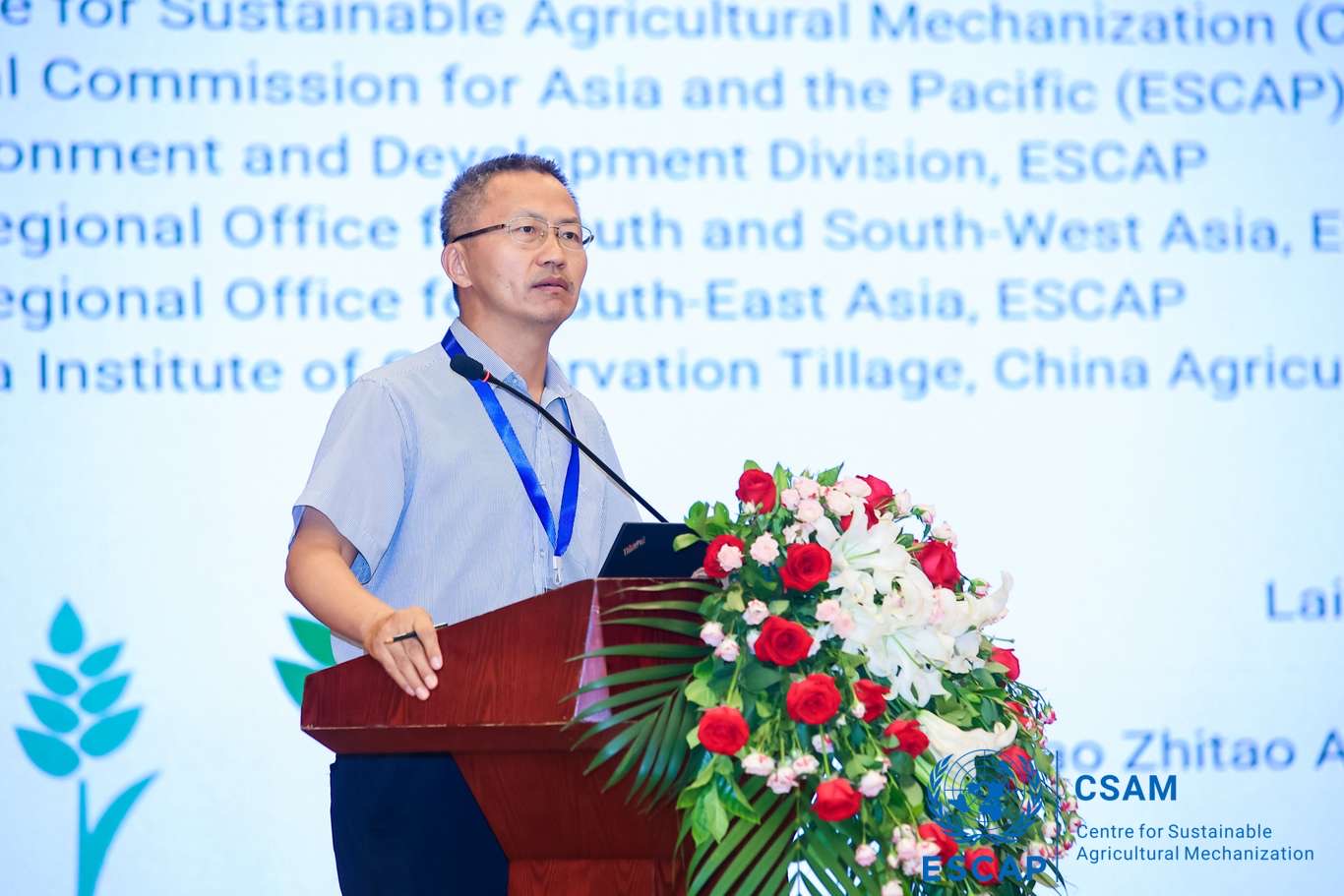

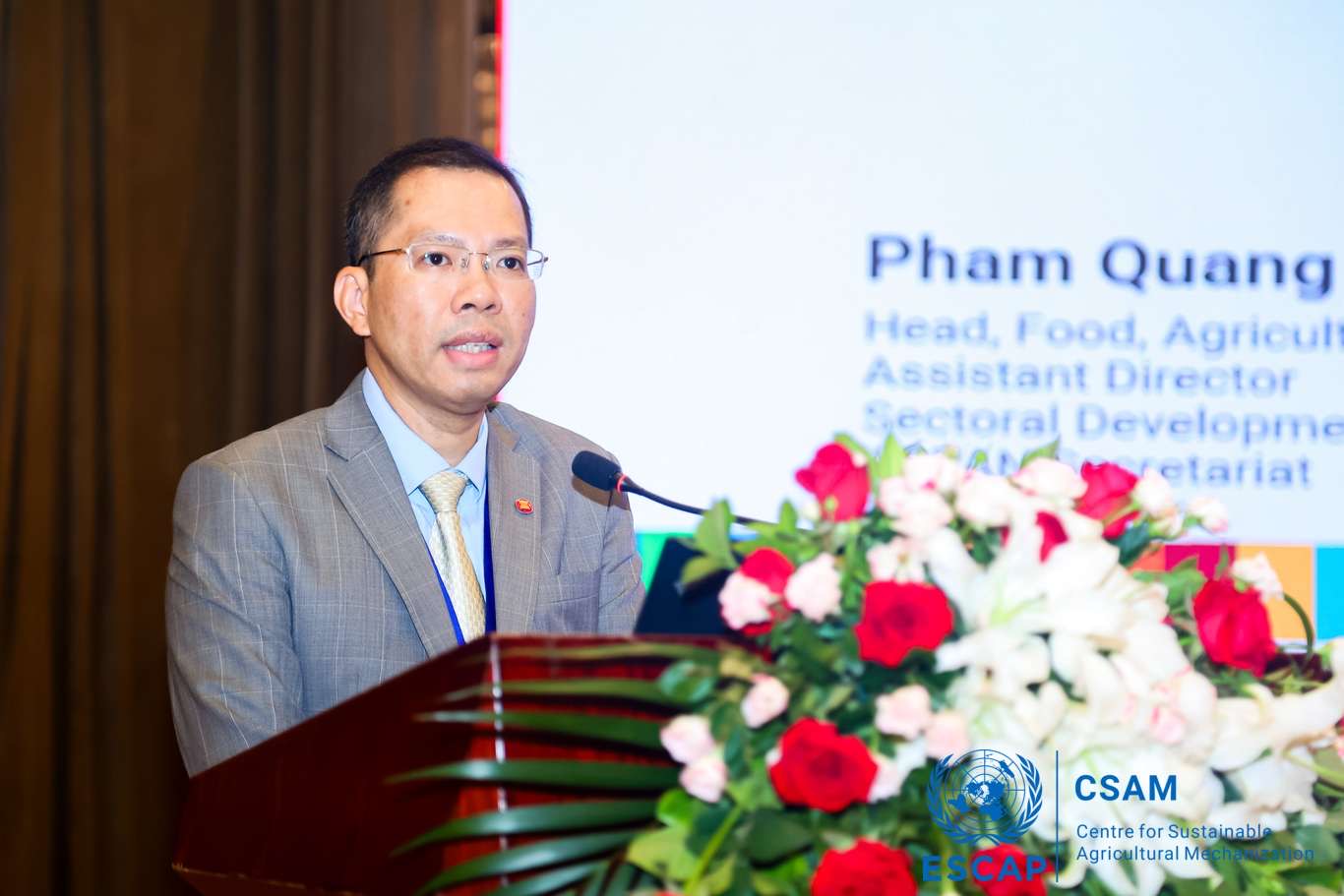
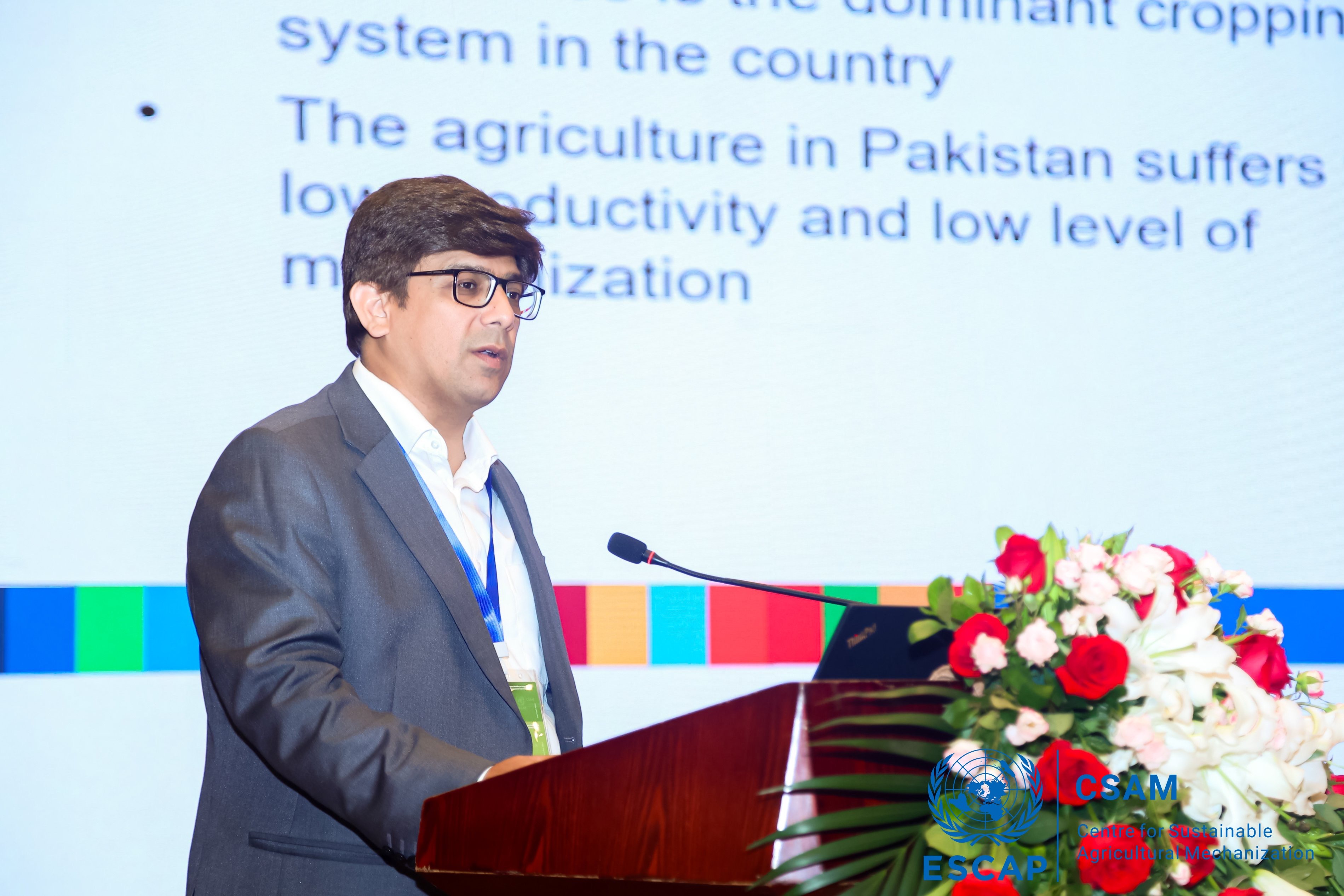
Participants from Bangladesh, India, Lao PDR, Malaysia, Pakistan, Philippines, Sri Lanka and Thailand presented their national strategies, challenges and recommendations in managing crop residue highlighting impacts on environment, health, and economic sectors while underscoring the need for sustainable alternatives to burning. Countries shared their efforts in promoting mechanization, conservation agriculture technologies, and government policies to improve straw management.
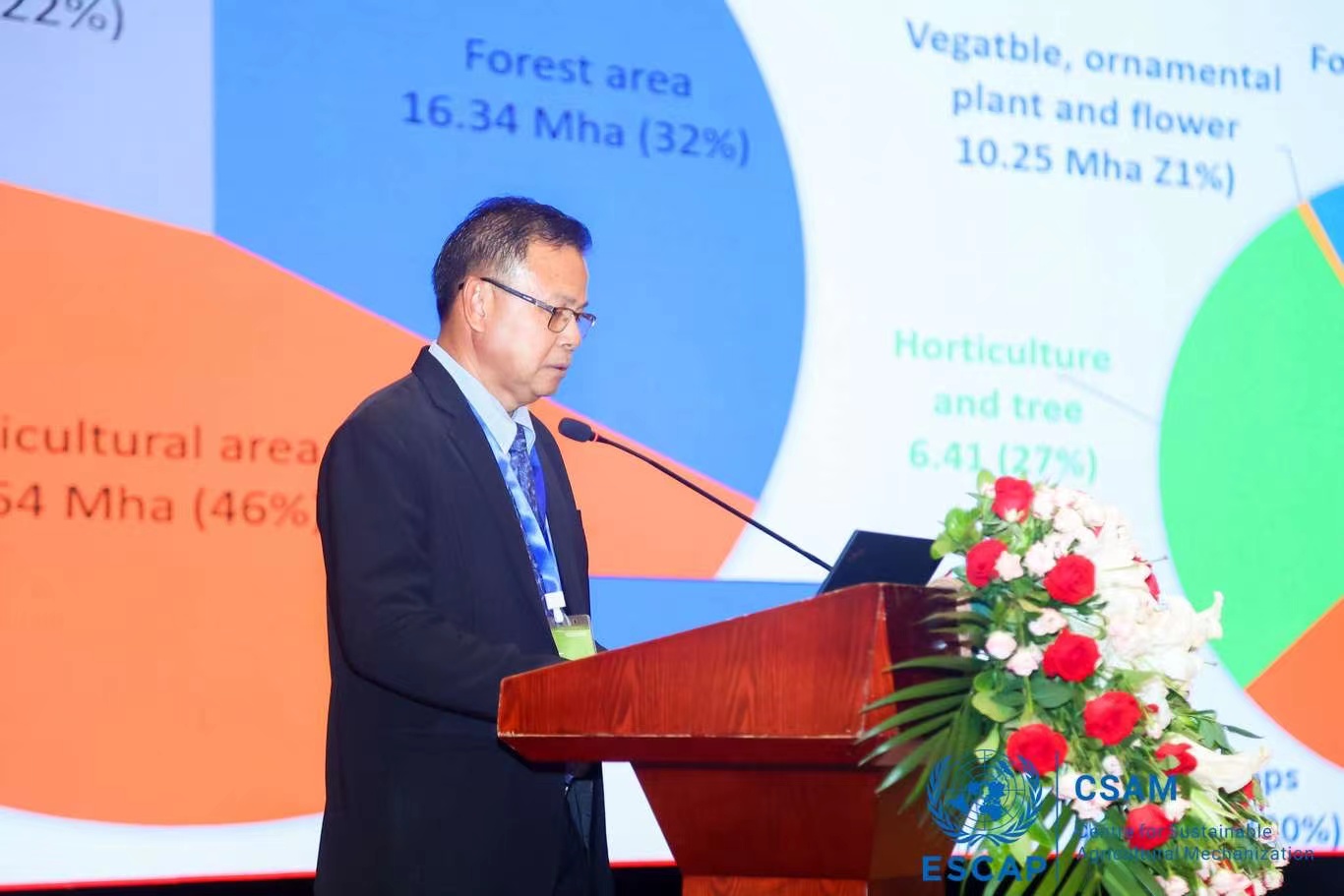
A panel discussion provided insights and lessons learned from the countries that implemented pilot projects under the CSAM Regional Initiative on Integrated Straw Management, namely Cambodia, China, Indonesia, Nepal and Viet Nam. The panelists highlighted the importance of multi-stakeholder collaboration, policy support, and technological innovation to achieve sustainable agriculture, while the ensuing discussion with all participants recommended the involvement of local champions and the expansion of the initiative in the region with new pilot sites to foster cooperation among countries with similar contexts and issues as well as South-South and Triangular Cooperation.
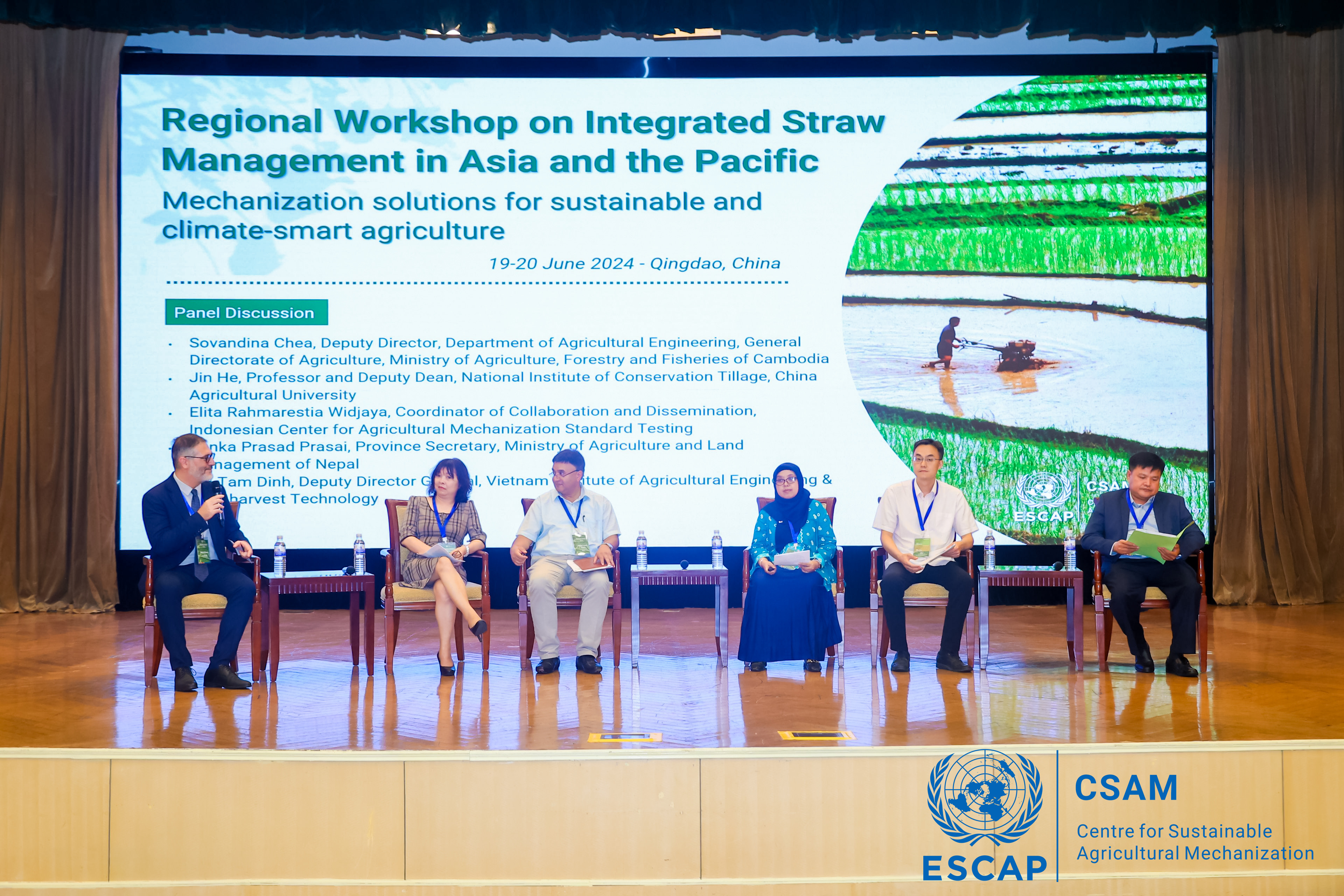
In conclusion of the first day, Dr. Yutong Li, Head of CSAM, and Prof. Hongwen Li, Dean of the Institute of Conservation Tillage of the China Agricultural University, underscored the critical need for ongoing regional cooperation and the sharing of best practices in straw management through sustainable agricultural mechanization.
On the second day of the workshop, participants visited the first pilot site of the CSAM Regional Initiative on Integrated Straw Management in Laixi, the Qingdao Zhitao Agricultural Machinery Specialized Cooperative, to participate in a practical field demonstration of mechanization applications for straw management, featuring different machinery solutions during harvest and post-harvest. The demonstration was followed by a presentation of the famers’ cooperative operation and management, including the circular model for integrated straw management developed and implemented as part of the CSAM Regional Initiative. The field trip also included visits to a biotechnology company using straw as substrate for mushroom growing, and an agricultural machinery factory.
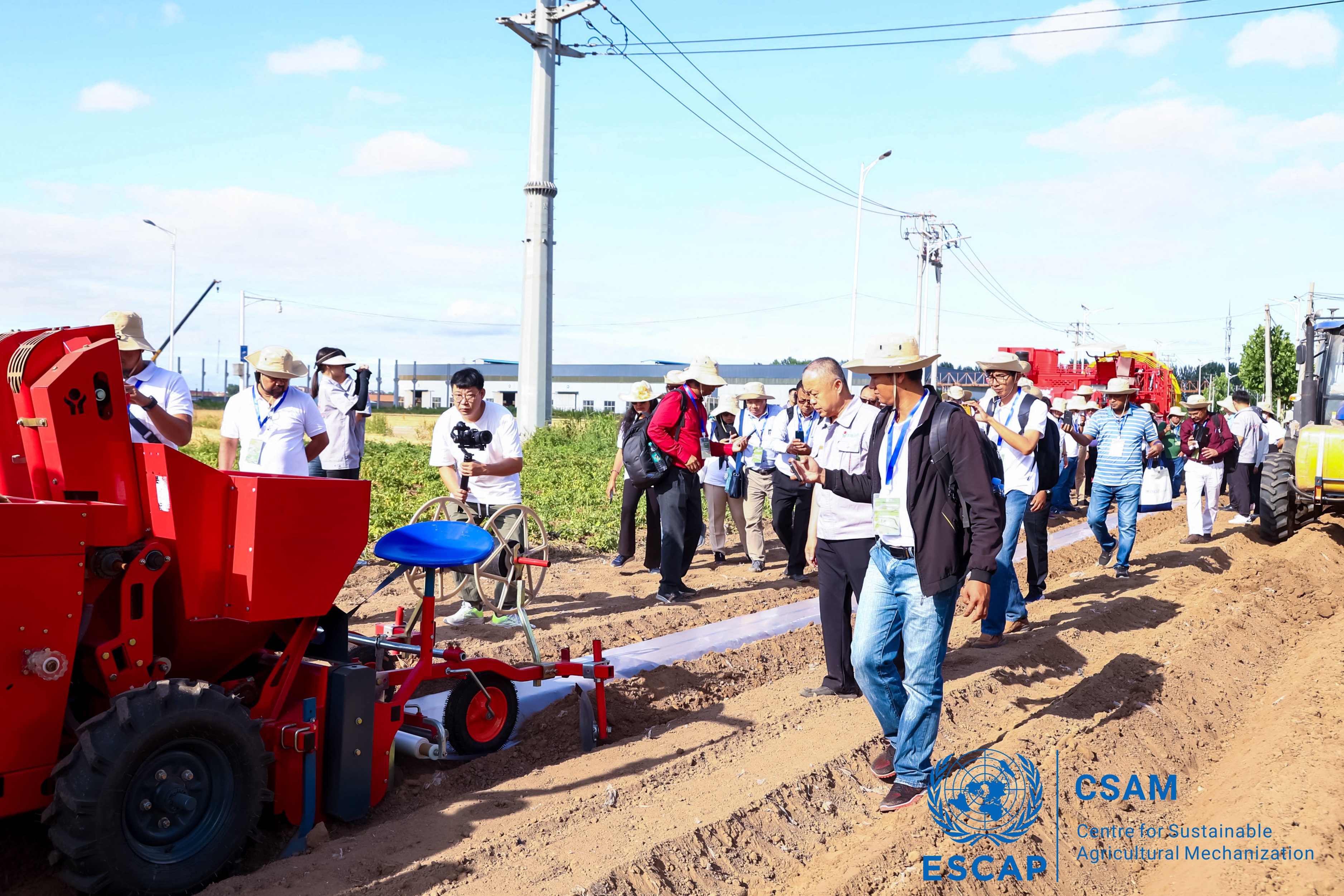
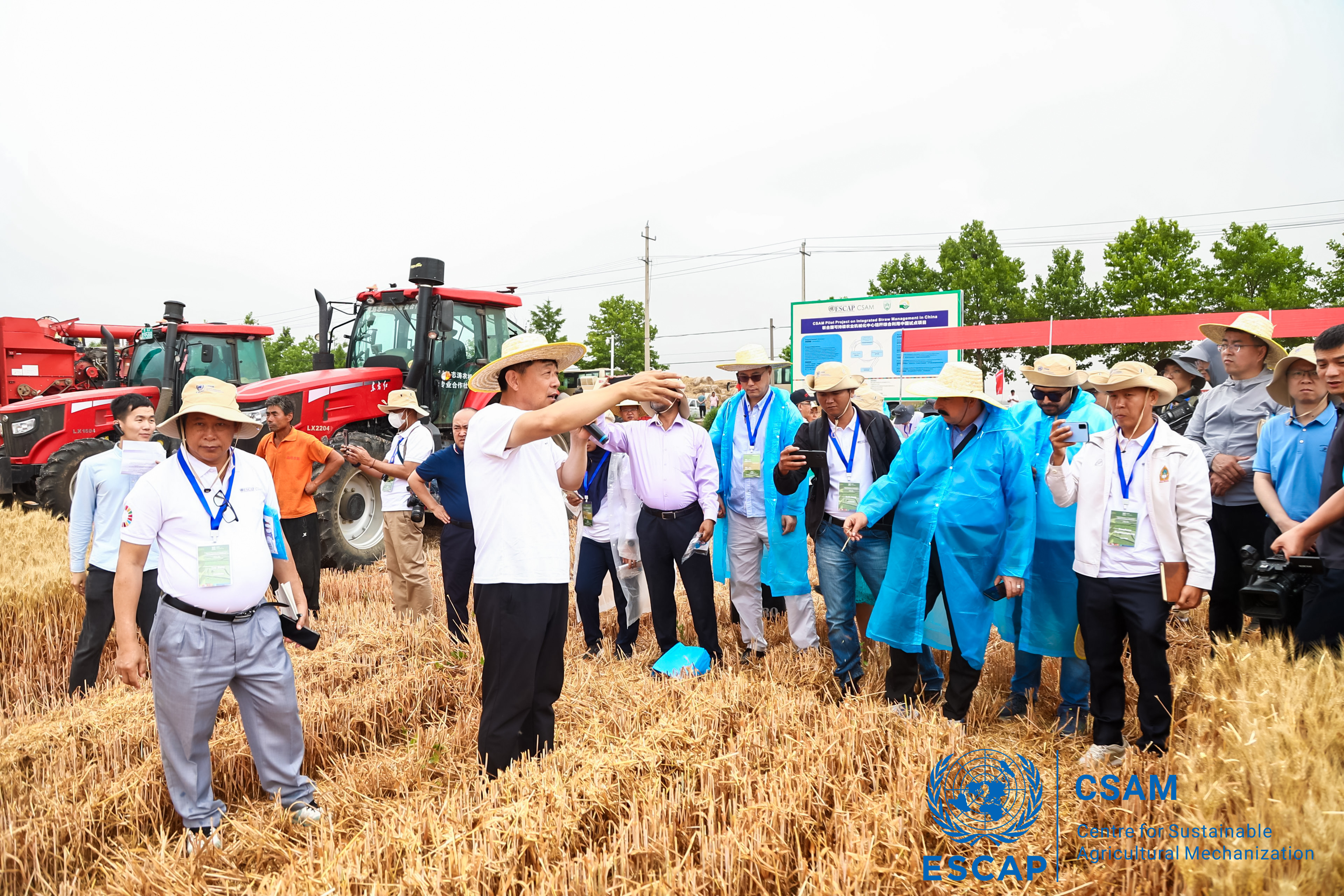
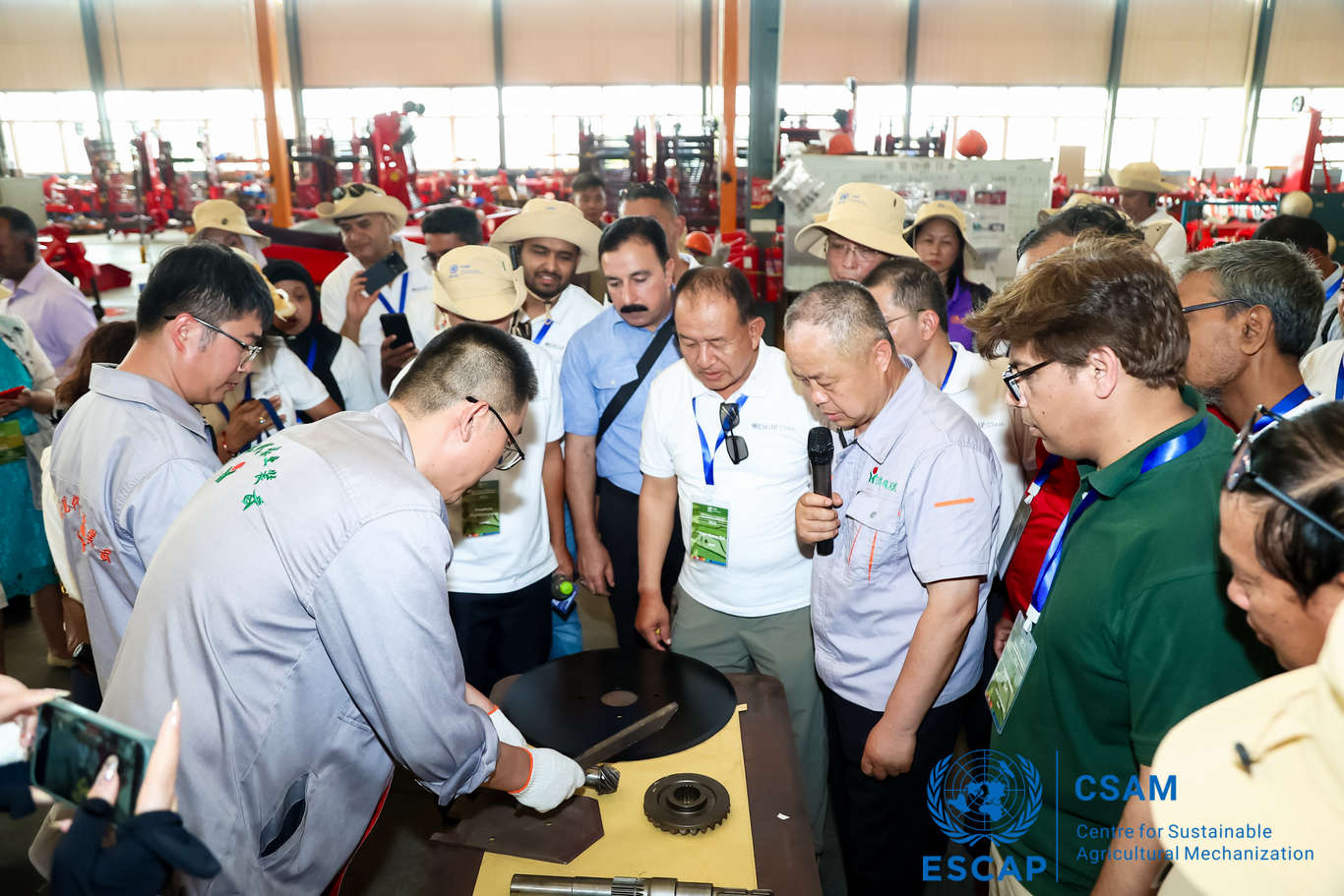
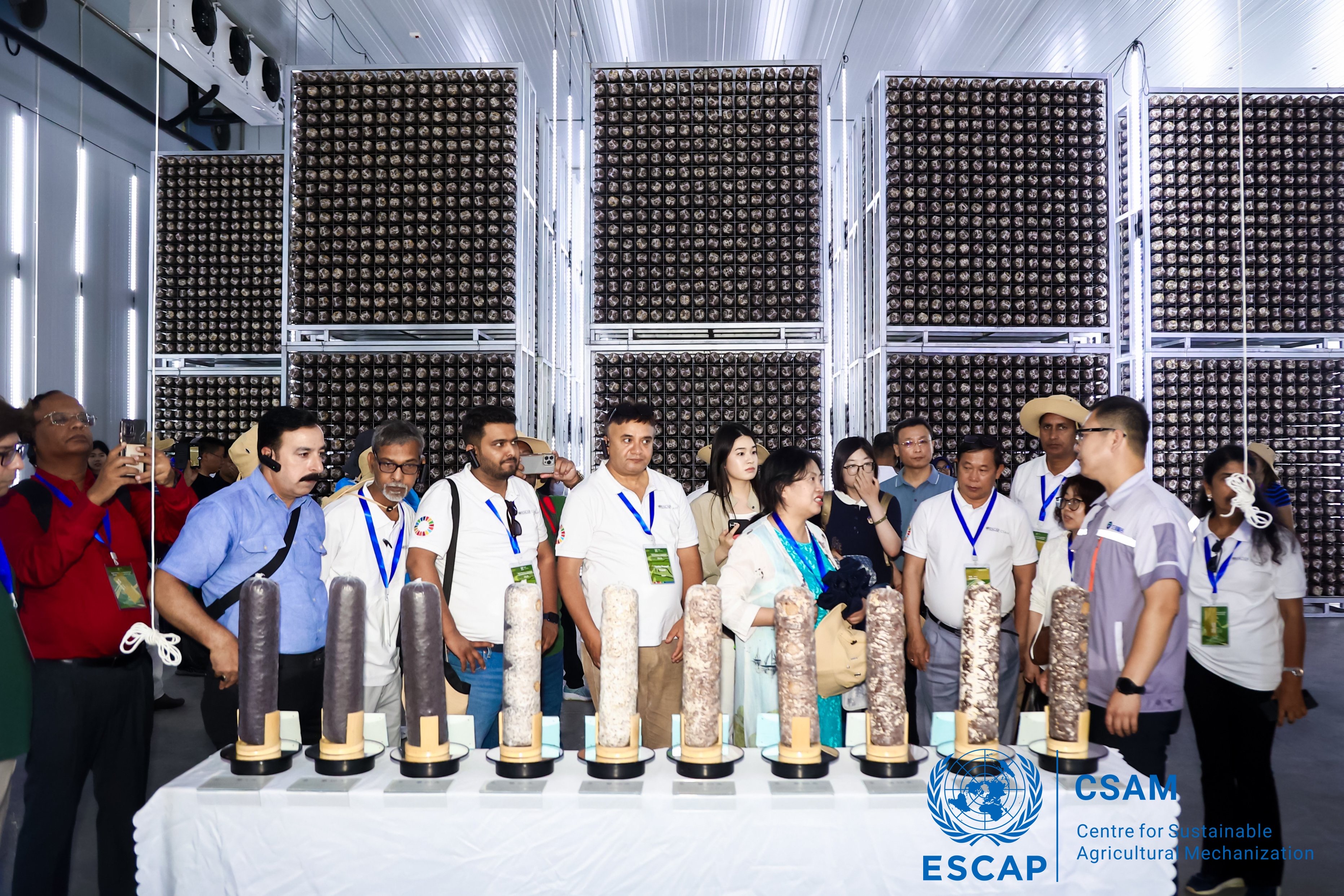
The CSAM Regional Initiative on Integrated Straw Management, which has contributed to identifying and sharing innovative technological solutions, learnings and good practices among ESCAP member States, has been cited as a good practice in South-South and Triangular Cooperation by the United Nations Office for South-South Cooperation. For more information visit https://www.un-csam.org/taxonomy/term/166
